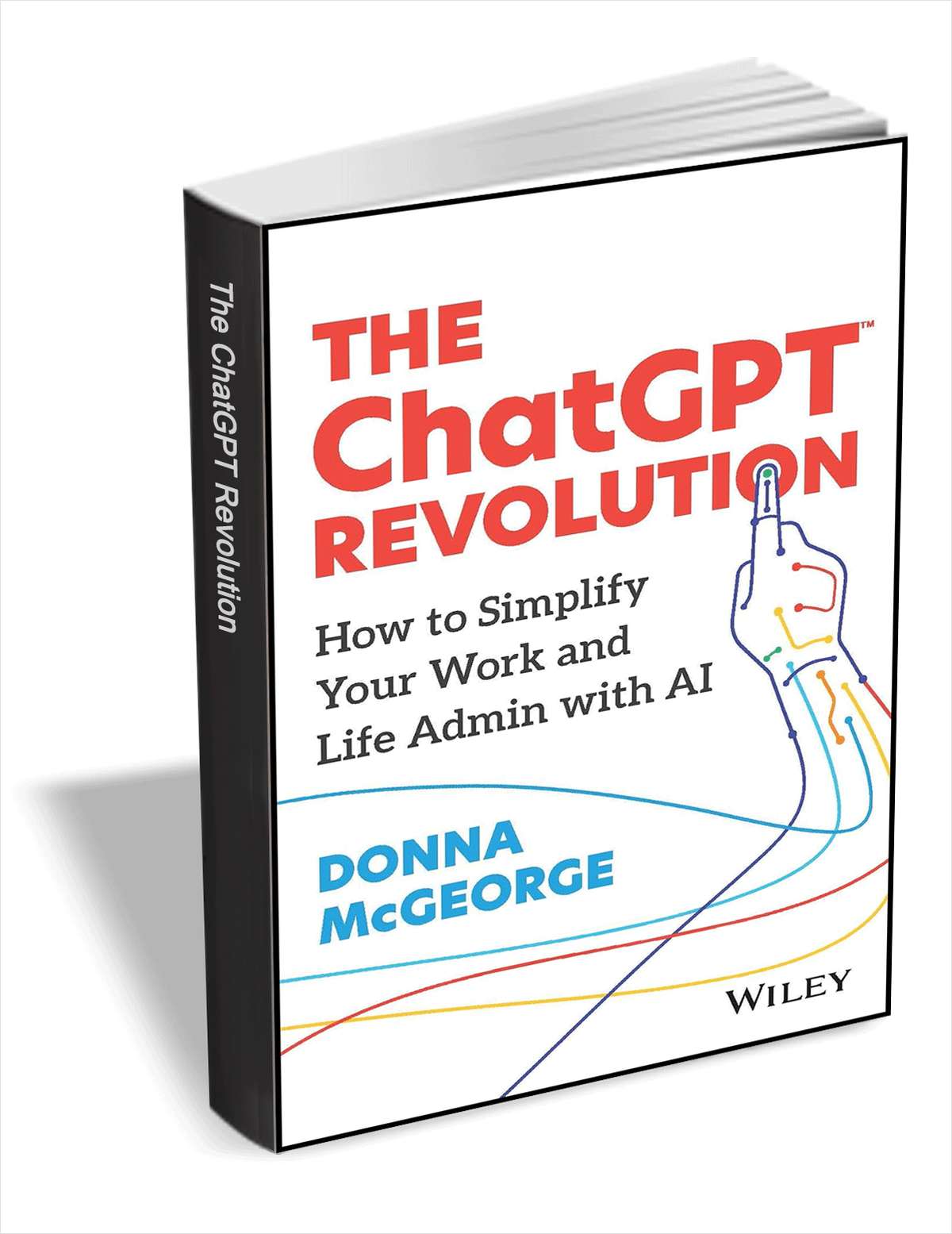
Balancing risk and reward with low-code and no-code platforms [Q&A]
In recent years, enterprises have increasingly turned to low-code and no-code platforms in order to streamline their development processes.
With the introduction of AI, this sector is evolving even faster and Wing To, general manager of Intelligent DevOps at Digital.ai, believes this needs organizations to develop a cautious approach. We spoke to him to find out why.

London calling: Hey, US, let's chat about cyber AI, the next WannaCry
In 2017, WannaCry caused significant disruption to the UK public and private sector. The disruption highlighted vulnerabilities within corporate and government systems, most notably within the UK. It impacted hospitals, healthcare facilities and social care, causing operations and admissions to be cancelled, delayed, or postponed.
The attack exposed a lack of robust cyber security measures, failings in basic IT administration and emphasized the importance of investing in strong defenses to safeguard critical public infrastructure. It prompted a renewed focus on cyber security within the UK and initiated efforts to enhance resilience against future cyber threats.

How AI is set to transform the legal sector [Q&A]
The use of generative AI is becoming common across many industries, but while it undoubtedly offers benefits it can lead to problems too.
Legal firms in particular can fall foul of poor results, one firm was fined $5,000 after a court found that one of its lawyers had used ChatGPT to write a court brief which included false citations.

Microsoft launches Retail Media Creative Studio to give advertisers the power of generative AI
Microsoft has announced a series of new artificial intelligence tools, options and capabilities which the company is using to empower retailers.
From copilot templates designed to help retailers provide personalized experiences for customers to generative AI tools for creating ads, Microsoft continues to push hard with AI. Of particular interest in the latest batch of tools is Retail Media Creative Studio, currently in preview.

Generative AI use in the workplace leads to added risks
More than 10 percent of enterprise employees access at least one generative AI application every month, compared to just two percent a year ago, but there are security risks as a result.
New research from Netskope shows ChatGPT was the most popular generative AI application in 2023, accounting for seven percent of enterprise usage. The number of cloud apps the enterprise accessed also increased by an average of 19 percent per year, with users jumping from 14 to 20 different apps in just two years.

AI and security: It is complicated but it doesn't need to be
AI is growing in popularity and this trend is only set to continue. This is supported by Gartner which states that approximately 80 percent of enterprises will have used generative artificial intelligence (GenAI) application programming interfaces (APIs) or models by 2026. However, AI is a broad and ubiquitous term, and, in many instances, it covers a range of technologies.
Nevertheless, AI presents breakthroughs in the ability to process logic differently which is attracting attention from businesses and consumers alike who are experimenting with various forms of AI today. At the same time, this technology is attracting similar attention from threat actors who are realising that it could be a weakness in a company’s security while it could also be a tool that helps companies to identify these weaknesses and address them.

Who will win the battle of open vs closed AI? [Q&A]
Closed AI products like Bard and ChatGPT (ironically from OpenAI) have already delivered a practical, powerful chatbot experience and are being employed by many businesses.
Open AI by contrast is still in its early stages and has not seen wide adoption. We spoke to Mike Finley, CTO and co-founder of AnswerRocket, to find out the differences between the two and how they're set to develop.

Why AI Is finally catching up with financial services
Generative AI has the potential to reshape entire industries and how they operate, and financial services stand out as uniquely poised for AI-driven transformation. McKinsey & Company calls generative AI the next frontier for productivity, estimating that analyzing natural language text -- a core generative AI use case -- accounts for an average of 25 percent of the time people spend in any given enterprise.
The finance industry is a data-driven industry, so it’s no surprise that finance sector firms see big potential in using generative AI to tackle use cases that require assessing enormous amounts of unstructured data, such as company due diligence, know-your-customer (KYC) requirements, sustainability research, and controversy monitoring.

Lenovo unveils a range of new ThinkBook laptops with built-in AI functionality
Today at CES 2024, Lenovo introduced four new ThinkBook laptops -- the ThinkBook Plus Gen 5 Hybrid, the ThinkBook 13x Gen 4, the ThinkBook 14 i Gen 6+ and the ThinkBook 16p Gen 5.
These new laptops are designed to cater to the needs of a diverse user base, from media content creators to logistics professionals.

What's ahead in 2024? Stale cookies get the boot, scaling customer data operations, and unleashing AI
As we enter 2024, IT professionals find themselves at a pivotal moment, grappling with a trio of formidable challenges: the rapid evolution of artificial intelligence (AI), the phasing out of traditional cookies, and ongoing staffing shortages.
These developments are not merely altering the IT landscape but are also necessitating a reevaluation of strategies across businesses. In response to this dynamic environment, IT teams must pivot towards adopting scalable, AI-integrated customer data management systems.

Three questions enterprise leaders are asking about AI
Many leaders have been extremely aggressive about their AI strategies this year. However, despite the buzz generated by these technologies, most leaders are still scratching their heads trying to brainstorm real, practical ways to implement AI.
I’ve identified three common questions from leaders about AI for the enterprise and answered them with pragmatic guidance on the steps they can take today to make the most of these innovative technologies.

Get 'The ChatGPT Revolution: How to Simplify Your Work and Life Admin with AI' (worth $13) for FREE
The ChatGPT Revolution is the ultimate quick-start guide to unlocking the power of AI tool ChatGPT. We’re on the edge of an AI revolution… but what does that mean for you? It’s time to get curious about how the latest tech can help you handle your everyday load, at work and at home!
Whether you’re overwhelmed by repetitive, time-consuming tasks or you’re simply looking for a fresh injection of creativity, ChatGPT is the virtual assistant that’s got your back.

The promise of generative AI depends on precise regulation
AI’s path to maturity lacks footing without the stamp of regulation. While the recent developments of the White House executive order and the EU AI Act are a good start, there’s a lot of progress to be made in terms of AI research and rule-making. Because if we want to unlock the full range of AI use cases, we’re going to need precise regulation, tailored to the unique needs of each sector.
Generative AI sparks an opportunity to transform every industry; a prospect that has prompted a flurry of AI innovation across verticals that will undoubtedly send ripple effects throughout the economy. McKinsey estimates that across 63 different use cases, generative AI could contribute between $2.6 trillion to $4.4 trillion to the global economy annually. But sector and use-case-specific regulatory framework is imperative if we want to harness this potential and ensure responsible, safe applications of generative AI.

Why not all AI is created equal and how the wrong choice could be hurting your business [Q&A]
AI seems to be everywhere at the moment. But despite the fact that it has become ubiquitous, it isn't all the same.
Steve Benton, VP of threat research for Anomali, talked to us about why not all AI is equal and what businesses need to consider to ensure they get the most from the technology.

Microsoft rebrands its iOS and Android web browser to Microsoft Edge: AI Browser
With, as yet, nothing by way of an explanation, Microsoft has decided to rename the iOS and Android versions of its Edge web browser.
Now known as Microsoft Edge: AI Browser the change of name does not appear to have been accompanied by any significant changes. The mobile web browser does, like so many Microsoft products, include its fair share of artificial intelligence-powered features as the company continues to bet big on the importance of AI.
